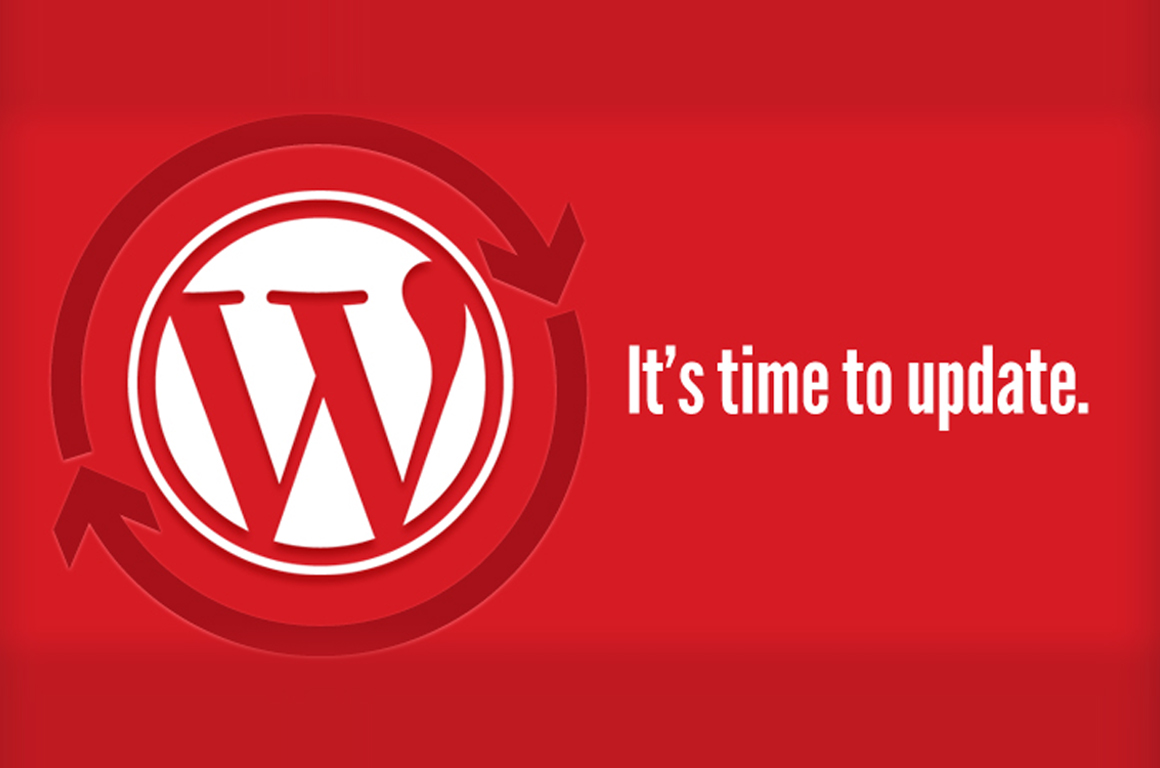So the site is Live and Huzzah what a journey that was but you can not sit on the couch and think you are done. WordPress alone is an ever-updating platform and combines that with themes and plugins regular updates, well which makes it all the more interesting. You have to maintain your website and to do so you need to constantly monitor it.
If your business website or blog is running on WordPress, you will be familiar with the little red Updates circle at the top left of your dashboard. But do you keep your WordPress installation, plugins, and themes up-to-date and maintained? If not, you are running the risk of your website being hacked or losing functionality.
WordPress is a fabulous content management system that is easy to use – and as a result, is powering over 25% of the world’s websites. But its popularity and the fact that it is open-source (meaning anyone can see, modify and use the code that runs WordPress) makes it a prime target for hackers.
Benefits of WordPress Updates?
1. Security
Security is arguably the most important reason why you should keep your WordPress website up to date.
WordPress currently powers 23% of all websites in the world. Due to its immense popularity, WordPress is a popular target for hackers, malicious code distributors, data thieves, and wannabe hackers.
This means that if you are not using the latest version of WordPress, then you are using software with known security vulnerabilities. Hackers can search for websites running the older version, and you may become a victim of a sophisticated attack. But you can put worries out of your mind with regular updates on site.
2. Cool New Features
Each major WordPress release comes with new features and changes to the software. For example, WordPress 4.0 came with an improved plugin install experience, 4.1 introduced inline image editing, and 4.2 came with faster plugin updates.
Now if you were using an older version of WordPress, then your WordPress experience would be a lot different than someone using the latest version.
3 Speed
WordPress developers are always trying to make things faster. Each new release comes with several performance improvements that make WordPress run faster and more efficiently. Since speed is a huge factor in SEO, you should definitely keep your WordPress updated to ensure maximum performance benefits.
4. Bug Fixes
Despite the rigorous testing of major WordPress releases, sometimes bugs may slip through the cracks. That’s why there are timely minor WordPress releases (the ones with X.X.X) to account for that. For example, the most recent WordPress 4.2.3 update fixed 20 bugs from the 4.2 release
To sum this up, the only downside is that in some rare cases your site will break. However, the upside is that you have:
- Improved WordPress security
- Cool new WordPress features
- Faster WordPress experience
- A bug-free WordPress website
Check the health of your website regularly with this free tool. Just need to sign up and you will get access reports that are not only useful but also help you grow your business with important tips.
What should be updated regularly on a WordPress site?
- WordPress Version:
You want to make sure that you are continually updating WordPress as new versions are released. You don’t want to be that guy that waits around and doesn’t update. With each update to WordPress, you will find bug fixes and security fixes; the major version updates (like 3.1, 3.2, 3.3…) will contain feature enhancements. One of these enhancements could be really helpful to you, but if you hold off on updating you won’t have access to them.
- WordPress Theme:
Many people don’t update their themes and a common reason is that they modify them to make them more personal. This is one reason you should look into using a child theme instead of modifying a parent theme. A lot of things that you can do in child themes will give you the functionality you are looking for when you modify the parent theme.
- WordPress Plugins:
You also want to make sure to update plugins frequently because they are susceptible to no longer working when a new version of WordPress comes out. Most of the time this is OK as WordPress tries to maintain 100 percent backward compatibility, however, there are cases where a new version can break a plugin. Additionally, there can be security vulnerabilities in plugins and you don’t want to be running an insecure version of that plugin where someone could maliciously compromise your site.
How to go about Updating a WordPress site regularly?
Before You Update
Make sure you have a full backup of your website. This includes both the WordPress files and database. Check with your web developer to see how backups are being performed. In some cases, a plugin such as BackupBuddy may have been installed. Make sure you are backing up regularly and that you have at least 3 backups of your website available in case something goes wrong with the update.
Before performing any upgrades, we recommend that you have a strong working knowledge of the following:
- CSS
- HTML
- MySQL
- PHP
- WordPress coding conventions, such as hooks, filters, and “the loop”
- cPanel (or other hosting administration software on your web host)
- phpMyAdmin (or other database management software on your web host)
If you are not comfortable with these technologies, you should have a professional WordPress web developer on standby for maintenance. If something goes wrong with the upgrade, you need to be able to immediately fix the problem or restore an earlier version of your website. If your website gets a significant amount of traffic, you may want to wait until after normal business hours, or even a weekend, before starting an upgrade.
We have been working on WordPress for over 5 years and Check us out here. I will be posting a detailed DIY guide here in a while.








